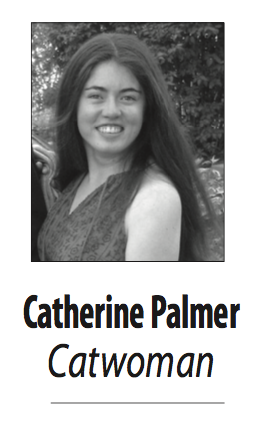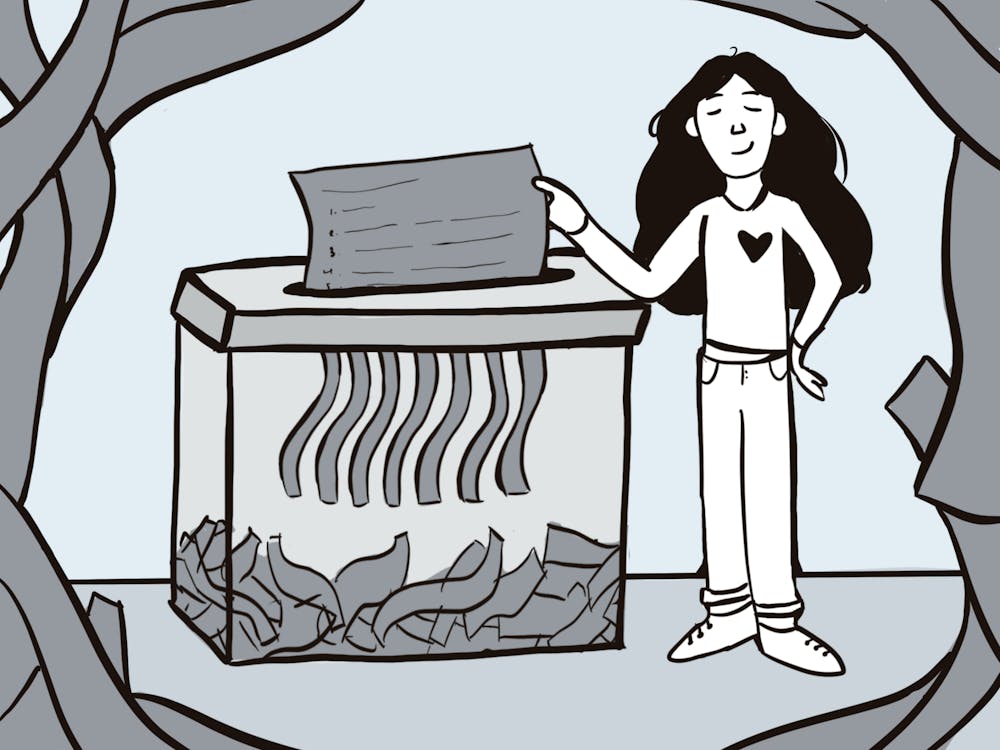
Let me first say that I’m a fan of Supergirl. The show, which tells the story of 24-year-old Kara Zor-El, Superman’s cousin, made history when it premiered in October 2015 as DC’s only female-led superhero TV show. It offers a refreshing portrait of female strength and vulnerability.
Despite a drop in viewership after moving from CBS to The CW for season two, the show has garnered more critical acclaim this year. Leading lady Melissa Benoist has also been able to participate in six fan-favorite crossover episodes with fellow DC-CW shows, helping to establish a solid fan base, at least among CW viewers.
That being said, there are two aspects of the show that I have issues with. The writers and producers still don’t seem to have gotten the hang of writing Kara’s romantic relationships (which I’ll discuss this week) and her career path (which I’ll take on in my next column). If left unresolved, these issues will continue weakening the show as it enters season three next fall.
Much of season one focused on a blossoming relationship between Kara, an assistant at CatCo Worldwide Media, and her colleague James Olsen (Mehcad Brooks), a photographer and close friend of her cousin. From the start, it was apparent that the relationship was built on Kara’s infatuation with James.
They developed a nice friendship as he helped her behind the scenes with her ‘superheroing,’ but their romance felt very forced. In fact, the backlash from fans was so strong that after they finally got together at the end of season one, Kara ended things with whiplash-inducing speed in the second season’s premiere.
Next, there is Kara’s new relationship with Mon-El (Chris Wood), a fellow alien whose home planet Daxam was destroyed in the wake of the explosion of Krypton, Kara’s home planet. He crash landed on Earth in an escape pod at the end of last season and has proven so far to be a disturbingly persistent thorn in Kara’s side.
Initially, his presence brings out an interestingly unflattering aspect of Kara: prejudice. Daxamites and Kryptonites historically never got along, and Kara at first refuses to see Mon-El as anything other than an inferior. Kara soon realizes her error and takes him under her wing, determined to help the former party boy use his powers for good.
But then history repeats itself. The show forces another romance to develop that is even worse than the one between Kara and James.
James was initially protective of Kara to the point that it made her feel like he didn’t have faith she could hold her own as a superhero. That issue got resolved by the third episode, though, and from then on, James was nothing but supportive.
Mon-El, on the other hand, week in and week out is doubtful and disrespectful of Kara. He doesn’t follow her instructions in the field. He outs their relationship when she explicitly asks him not to. He lies about his identity as the Prince of Daxam, fearful that Kara will reject him.
It’s a cycle of Mon-El being an ass and Kara inexplicably forgiving him that the show only seems to have broken in its most recent episode: When Mon-El shows true concern for Kara, he sacrifices his happiness on Earth to take his place as prince of the Daxamites’ new home planet in order to protect Kara from his vengeful, Kryptonian-hating mother.
Kara ended up rescuing him, so maybe now they can finally start building a healthy relationship. But I still struggle to understand why Kara has stuck with him for so long to begin with and why she needs a romantic relationship at all right now. It’s not within her nature to have one-night stands, but that doesn’t mean she needs a new boyfriend every five seconds either
It’s really the relationship between Kara and her older, adoptive sister Alex (Chyler Leigh) that carried the show through its first season. Alex’s parents took Kara in after she arrived on Earth at the age of 12. However, it was their 14-year-old daughter who was in charge of taking care of her and making sure she didn’t put herself in danger by exposing her powers.
In the pilot episode, Kara did just that in order to save Alex and her fellow passengers from dying in a plane crash. That save inspired her to don the cape, much to Alex’s chagrin. Alex soon came around and let Kara team up with her at the Department of Extranormal Operations (DEO), where she had secretly been working for the past few years, helping protect Earth from dangerous alien threats.
Kara and Alex’s bond is inspiring, strong and beautiful, and it is made possible by Benoist and Leigh’s real-life sisterly chemistry and affection for one another. Kara may be National City’s superhero, but she is also Alex’s little sister.
One issue that the show addressed well was Alex’s struggle to find herself outside of Kara’s influence on her life. Since Kara’s arrival, Alex has acted as a single mom to her, sacrificing having a life of her own in order to always to be there for Kara.
But when the show picks up, Alex is a 26-year-old still using her adult sister as an excuse not to put herself out there. Kara made Alex promise at the end of season one that she would “find love and be happy... and do all the things that being [Kara’s] sister kept [her] from doing.”
The show delivered on that promise this season with Alex experiencing a revelation about her sexuality and developing a relationship with police detective Maggie Sawyer (Floriana Lima). Their care and respect for one another has definitely made the relationship a highlight of season two. The only downside is that it has started to overshadow the relationship between Kara and Alex.
While it is absolutely necessary for Alex to develop a life outside of Kara, Kara and Alex were the heart of the show, and their heavily diminished one-on-one screen time this season is disappointing. I’m not saying, by any means, that Alex and Maggie’s relationship should be put on the back burner. But Kara and Alex’s relationship should at least be getting an equal amount of the limelight.
Neither LGBT+ relationships nor platonic, positive female relationships are explored nearly as meaningfully or as often as heterosexual romantic relationships are on TV. Supergirl has the opportunity to explore both, but it should not allow either one to come at the expense of the other.
The show is going to need to be careful in how it continues to develop relationships in its third season if it wants to continue showcasing realistic interactions between women.
As for the show’s romantic storylines, it should look to The Flash and Arrow as examples and take the time to craft a relationship that is built first and foremost on friendship and develops organically across multiple seasons, one that viewers can invest in, like between Barry Allen (Grant Gustin) and Iris West (Candice Patton) or Oliver Queen (Stephen Amell) and Felicity Smoak (Emily Bett Rickards).
The slow burn is a time-honored tradition for a reason. If Supergirl writers and producers want Kara to continue flying on TV, they shouldn’t be afraid to let her fly solo.






















Please note All comments are eligible for publication in The News-Letter.